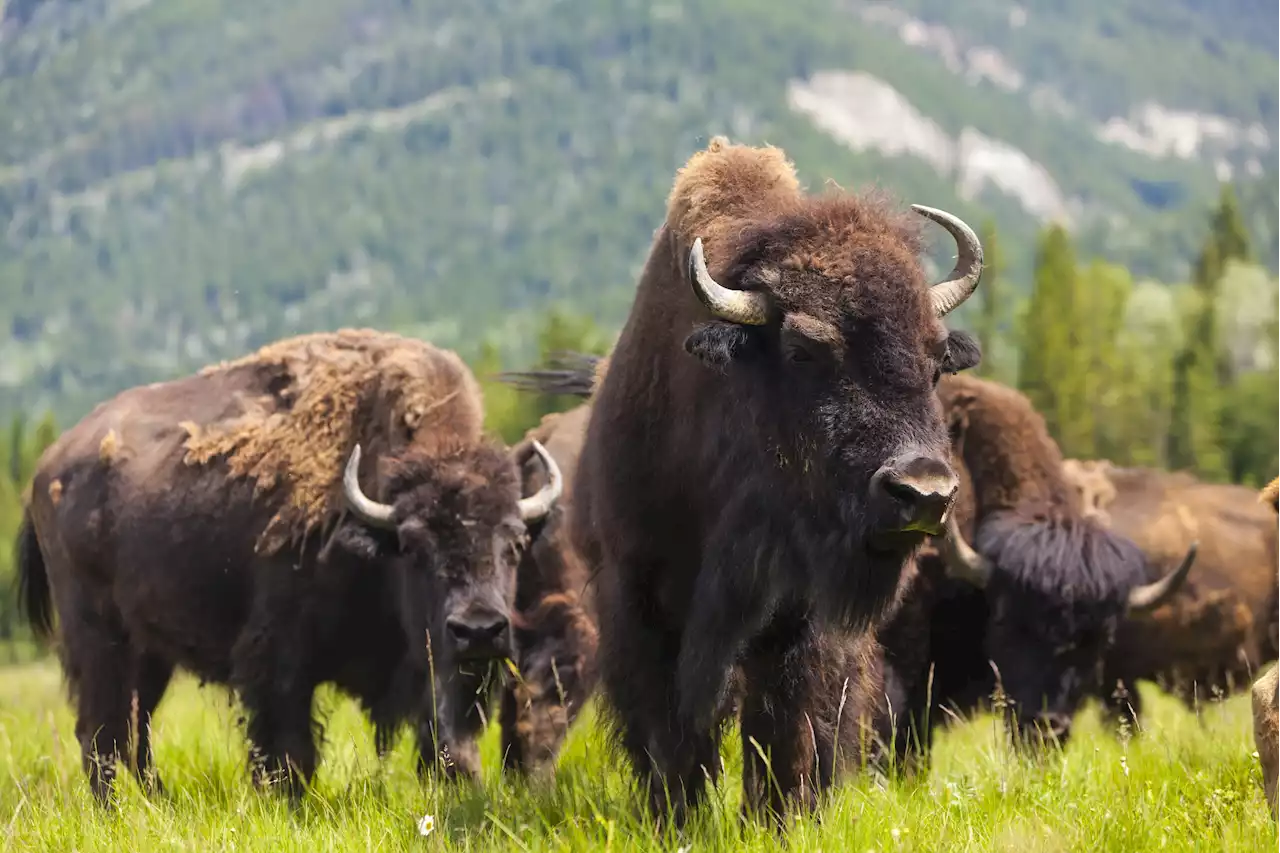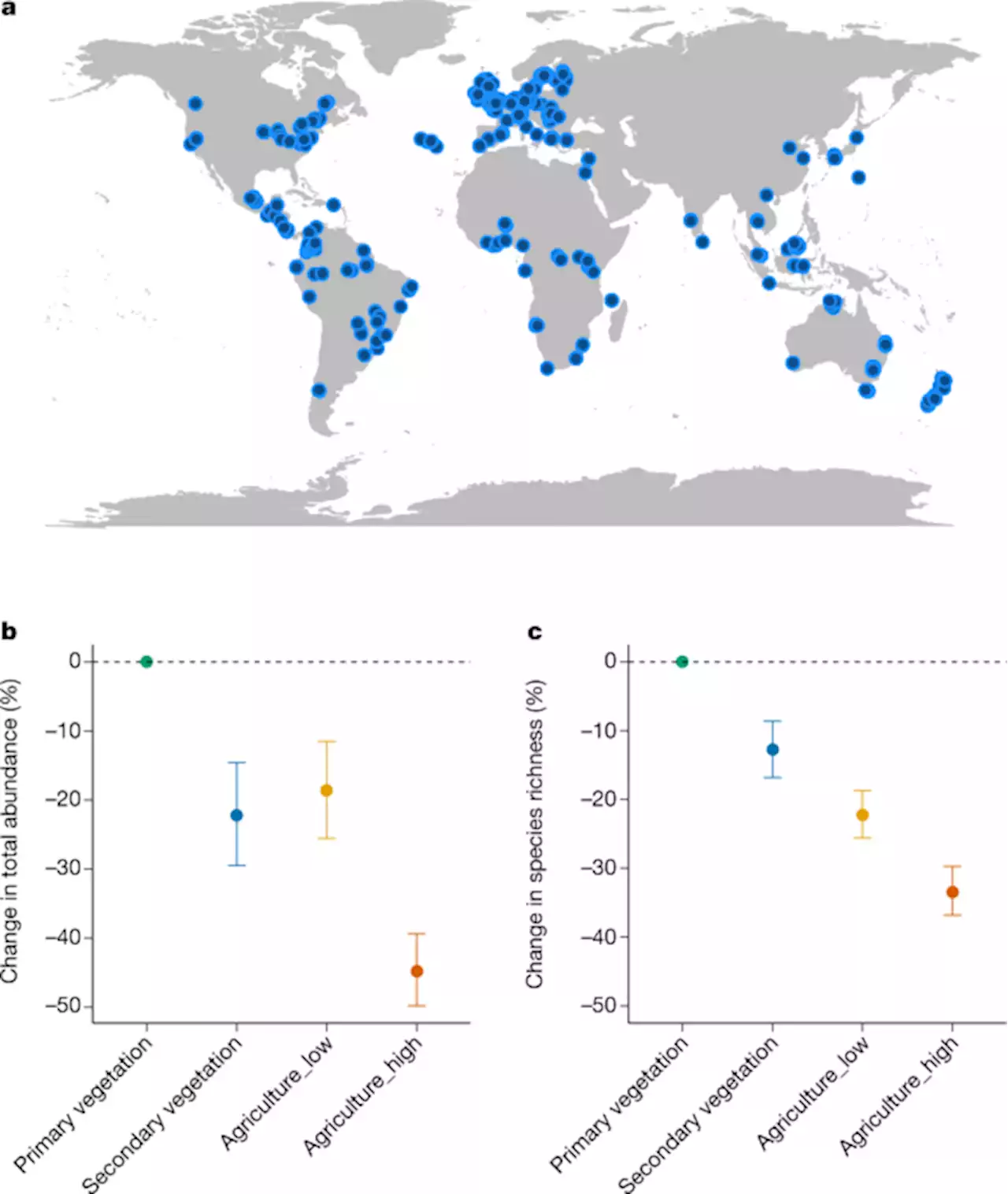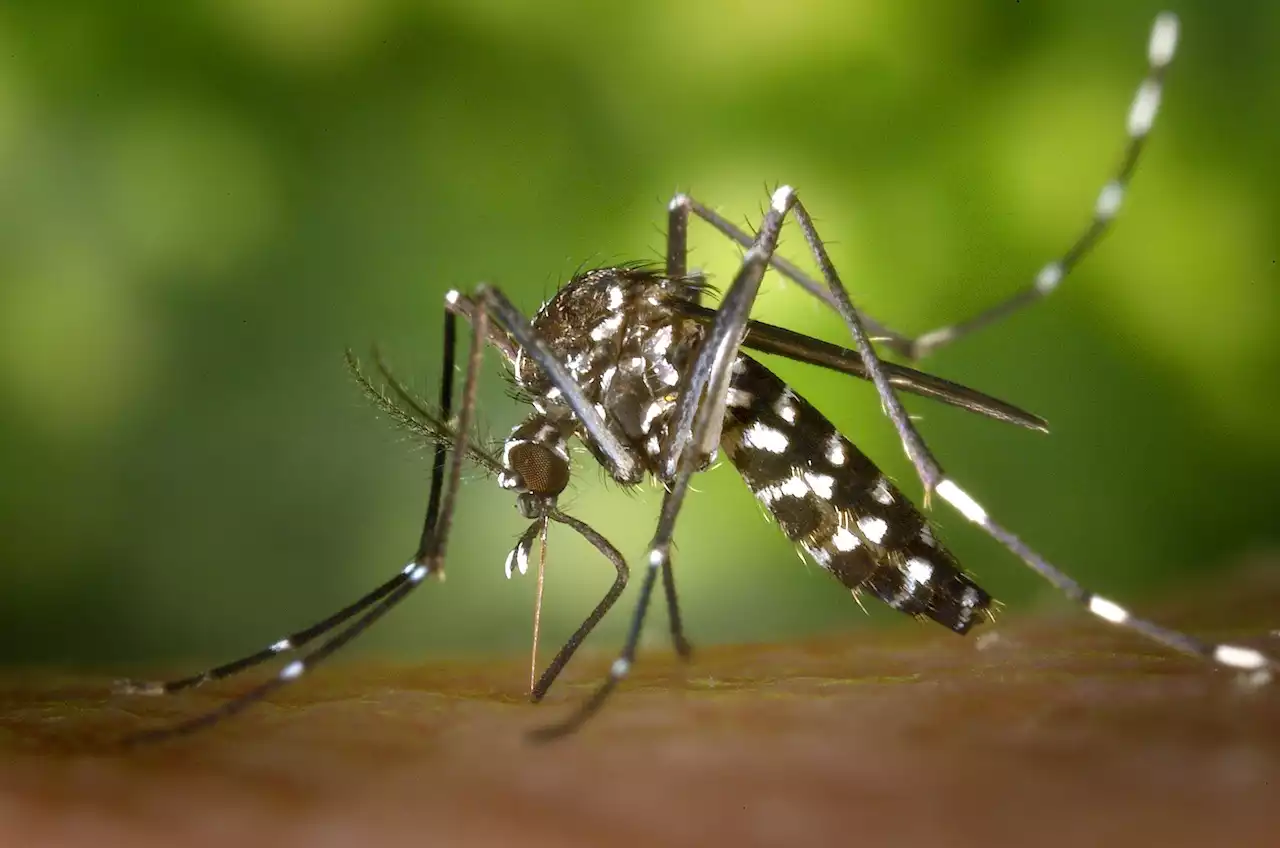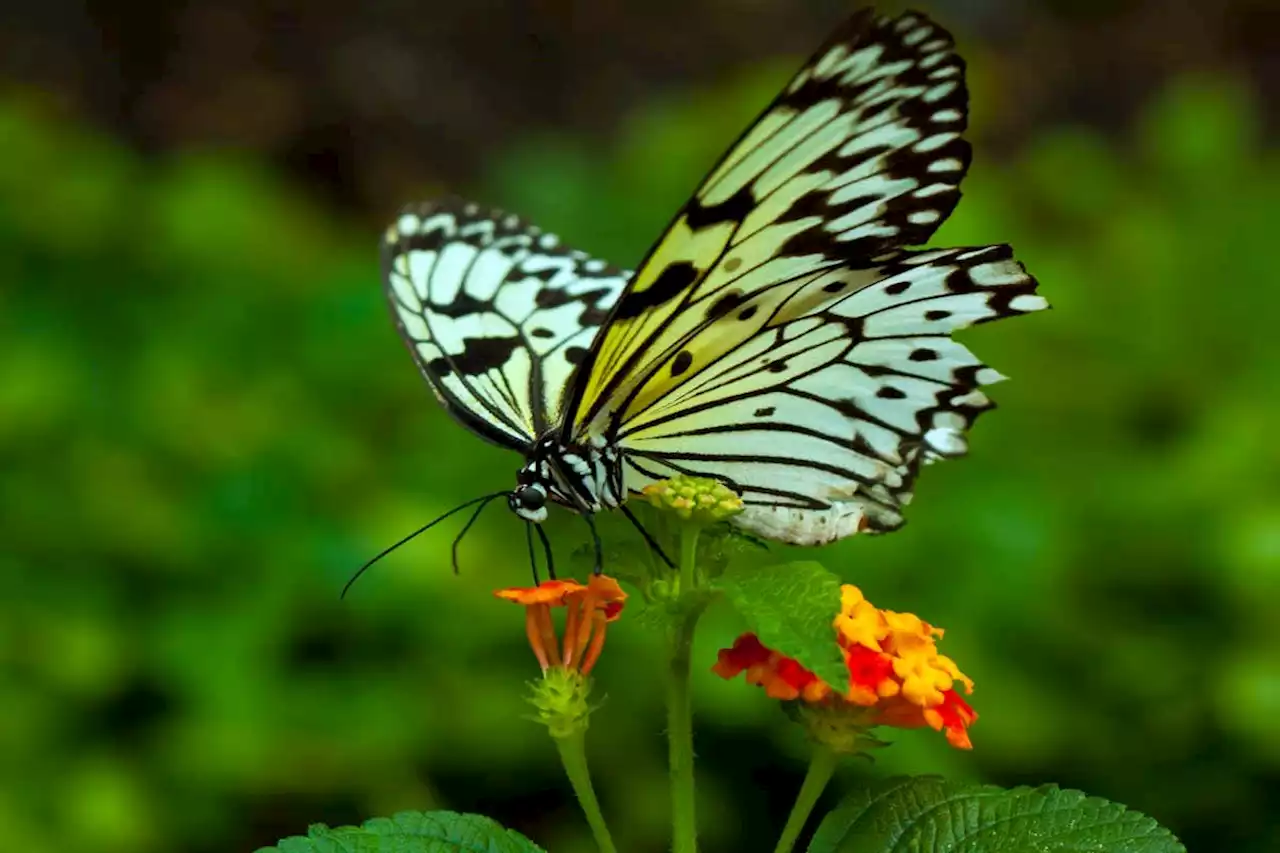Insects are on the decline because of the combined effects of climate change and intense agriculture, with the worst-hit areas seeing a 49 per cent drop in insect numbers
The combined effects of climate change and agriculture may be responsible for large declines in insect populations around the world, with worst-hit regions seeing a 49 per cent drop in numbers.
across a total of 6095 sites around the world. The studies covered 17,899 insect species including beetles, wasps, butterflies and crickets, with data collected between 1992 and 2012. They found that in regions with the highest temperature rises and high-intensity agriculture, there were 49 per cent fewer insects than in regions where the effects of climate change are minimal and there is little human activity. What’s more, in the regions worst affected by climate change and farming, there were 27 per cent fewer insect species than in regions little affected by climate change and farming.
“Insects in temperate regions are much closer to their cold limits than their warm limits, whereas in the tropics, places are just getting too hot for them,” says Outhwaite.
France Dernières Nouvelles, France Actualités
Similar News:Vous pouvez également lire des articles d'actualité similaires à celui-ci que nous avons collectés auprès d'autres sources d'information.
 Yellowstone bison slaughter fails miserably, with just 49 killedThe National Park Service had planned to slaughter between 600 and 900 bison to keep their numbers at a manageable level.
Yellowstone bison slaughter fails miserably, with just 49 killedThe National Park Service had planned to slaughter between 600 and 900 bison to keep their numbers at a manageable level.
Lire la suite »
 Singer Roderick 'Pooh' Clark of Hi-Five dies at 49Clark passed away on Easter Sunday, according to the group's members.
Singer Roderick 'Pooh' Clark of Hi-Five dies at 49Clark passed away on Easter Sunday, according to the group's members.
Lire la suite »
 Hi-Five Member Roderick 'Pooh' Clark Dead at 49Roderick 'Pooh' Clark, original member of Hi-Five, has died.
Hi-Five Member Roderick 'Pooh' Clark Dead at 49Roderick 'Pooh' Clark, original member of Hi-Five, has died.
Lire la suite »
 Agriculture and climate change are reshaping insect biodiversity worldwide - NatureInteraction between climate warming and intensive agricultural land use is associated with reductions in insect abundance and species richness, which can be mitigated by nearby natural habitats in low-intensity agricultural settings.
Agriculture and climate change are reshaping insect biodiversity worldwide - NatureInteraction between climate warming and intensive agricultural land use is associated with reductions in insect abundance and species richness, which can be mitigated by nearby natural habitats in low-intensity agricultural settings.
Lire la suite »
 The first US trial to release GMO mosquitoes just ended. Here's how it went.Researchers wanted to see whether the modified mosquitoes would successfully mate with local insects to reduce the wild population.
The first US trial to release GMO mosquitoes just ended. Here's how it went.Researchers wanted to see whether the modified mosquitoes would successfully mate with local insects to reduce the wild population.
Lire la suite »
Biotech company announces results from first US trial of GM mosquitoesOxitec reports that its insects behaved as planned — but a larger trial is needed to learn whether they can reduce wild mosquito populations.
Lire la suite »
